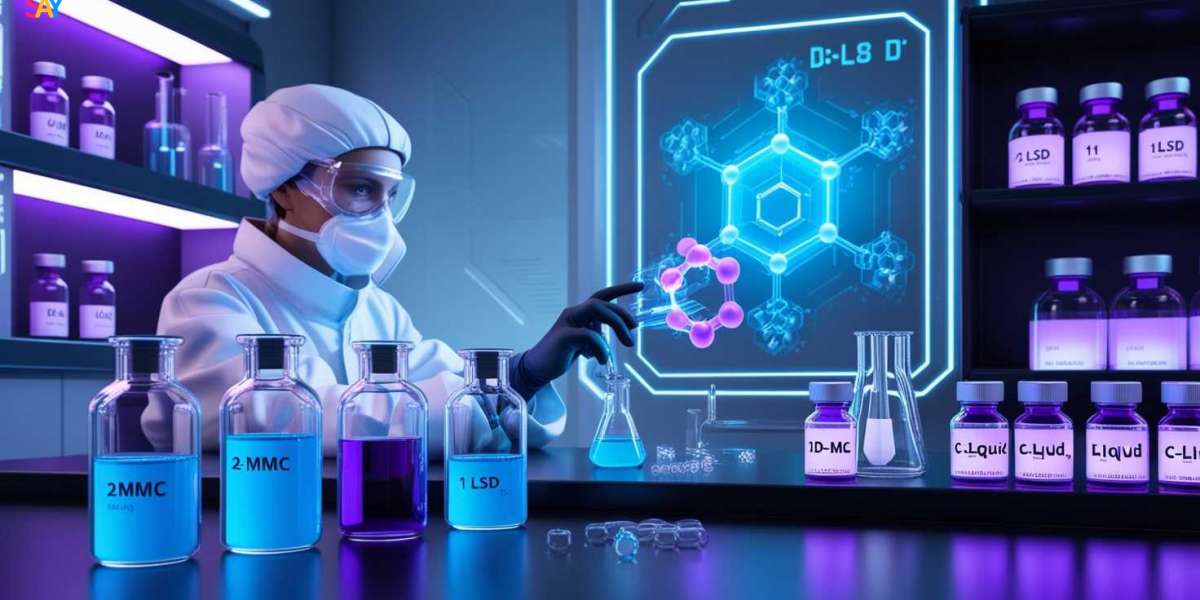The research chemical market is constantly evolving, with new compounds emerging as alternatives to well-known substances. One such compound that has gained significant attention is 1D-LSD. As a relative newcomer, 1D-LSD is sparking interest among researchers and psychedelic enthusiasts alike. But what makes this substance stand out, and why is it becoming increasingly popular?
What Is 1D-LSD?
1D-LSD is a derivative of LSD (lysergic acid diethylamide) that is structurally similar to its parent compound but features a slight chemical modification. This modification allows it to exist in a legal grey area in certain countries, making it a sought-after alternative for research purposes.
Chemically, 1D-LSD is considered a prodrug of LSD, meaning that once ingested, the body metabolizes it into LSD, resulting in effects that are nearly identical to traditional LSD. Because of this, it has quickly gained recognition as a viable option for researchers studying psychedelic substances.
Reasons for 1D-LSD’s Growing Popularity
Legal Loopholes and Accessibility
One of the primary reasons for 1D-LSD’s rise in popularity is its legal status in many countries where LSD remains banned. Since 1D-LSD is technically a different molecule, it often does not fall under the same restrictions as LSD, allowing researchers to obtain and study it without violating existing drug laws.
Germany, for example, saw a surge in 1D-LSD availability after authorities banned previous LSD analogs like 1P-LSD and 1V-LSD. As a result, suppliers have continued to introduce new derivatives that remain within the legal limits while still providing similar effects.
Similar Effects to LSD
Since 1D-LSD functions as a prodrug, its effects are nearly indistinguishable from LSD. Users and researchers report similar:
- Visual and sensory alterations
- Euphoria and enhanced mood
- Deep introspective experiences
- Time perception distortions
This consistency makes it an appealing choice for researchers looking to study the effects of psychedelics without legal complications.
High Demand for Psychedelic Research
Psychedelic research has seen a resurgence in interest, with institutions and scientists exploring the potential therapeutic benefits of LSD-like compounds for mental health treatment. Studies suggest that substances like LSD may help with depression, anxiety, and PTSD.
Because of its similarities to LSD, 1D-LSD allows researchers to explore these potential benefits in a controlled setting while staying within legal boundaries. This has contributed to its increasing demand in the scientific and research communities.
Reliable Supply and Quality Control
Compared to other research chemicals, 1D-LSD has gained a reputation for consistent quality and purity. Reputable suppliers ensure that the compound meets high standards, providing transparency with laboratory testing and Certificates of Analysis (COAs).
The research chemical market can often be unpredictable, with varying levels of purity in newly synthesized substances. However, since 1D-LSD is closely related to established LSD analogs, researchers can trust that they are working with a well-characterized compound.
Potential Risks and Considerations
Despite its growing popularity, 1D-LSD is not without concerns. Because it is a relatively new compound, long-term effects and safety data are still limited. Although it behaves similarly to LSD, there is always a degree of uncertainty with novel substances.
Additionally, while 1D-LSD may be legal in some jurisdictions, laws can change rapidly. Researchers and buyers should stay updated on regulations in their respective countries to ensure compliance.
Conclusion
1D-LSD is making waves in the research chemical world due to its legal accessibility, LSD-like effects, and increasing interest in psychedelic research. As more studies explore its properties, it is likely to remain a key player in the expanding field of psychedelic science. However, researchers must proceed with caution, ensuring responsible use and staying informed about any legal updates.




